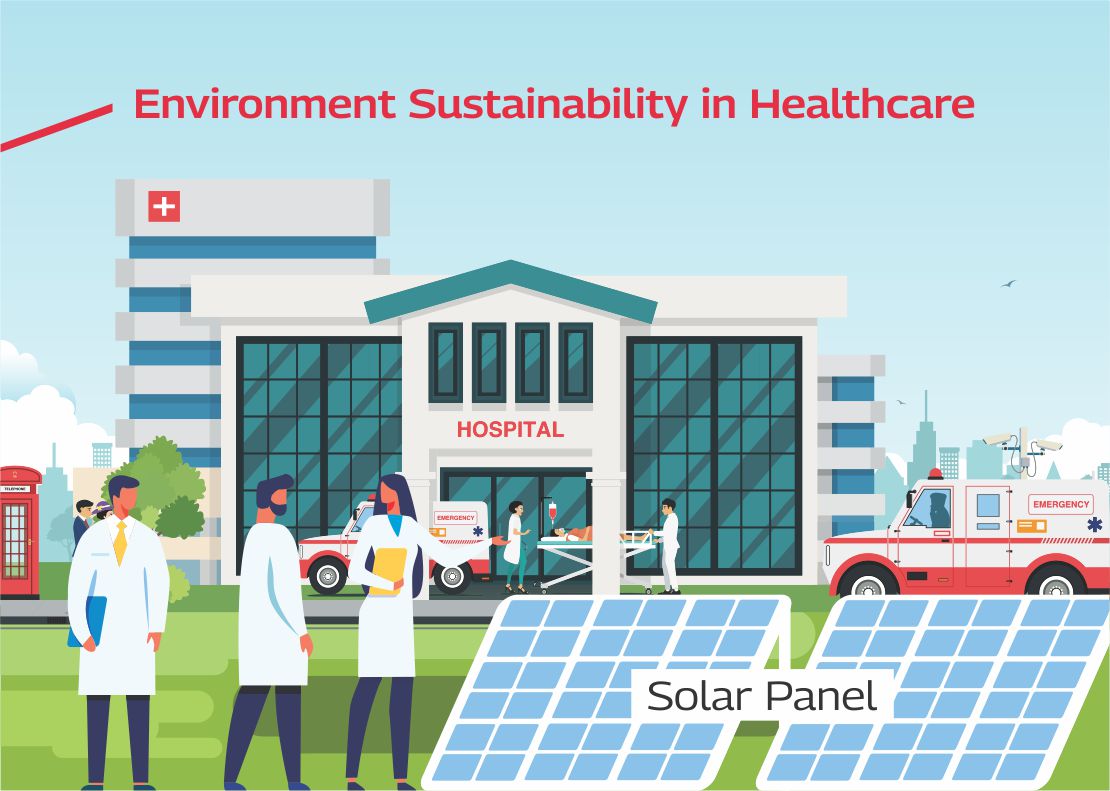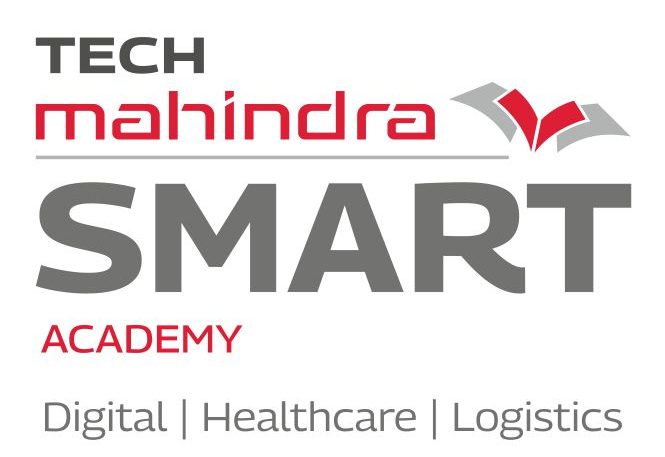
Environment sustainability is considered as being responsible, mindful about using natural resources, avoiding depletion or deprivation of natural resources, and sustaining the long-term environmental quality. Healthcare services are fundamental in achieving and maintaining public health and welfare and are key factors for any country’s development and economic growth. In terms of revenue and employment, healthcare is one of India’s largest sectors. It is at a growing stage, expected to grow threefold, growing at a CAGR of 22% between 2016-22.
Due to the Healthcare sector’s size, processes, and advancement in medical equipment and clinical technology, the healthcare sector including all its branches consumes a considerable amount of energy and resources, and produces major streams of emissions and waste, either directly or through the goods or services it procures, uses, and disposes of. This entails direct and indirect environmental impacts, which have generally been addressed with regulatory compliances and certifications.
Healthcare sector impact on the environment:
It is evident that healthcare plays a significant role in impacting the overall environment. Following are a few ways to explain this further
- Healthcare waste: Healthcare systems generate a lot of waste, out of which 70 to 75% is similar to domestic waste in consumption, but 25 to 30% of waste falls under hazardous healthcare waste, which if not disposed of carefully, may impact public health at large. Even the incineration of medical waste may emit high levels of heavy metal and other air pollutants.
- Wastewater: Hospital wastewater may contain pharmaceutical products, microorganisms, heavy metals, organic halogens, and free chlorine. Conventional water treatment may not be effective in removing many pharmaceutical products found in water.
- Greenhouse gas emission: The healthcare sector is a major emitter of greenhouse gases. They generally originate from medical consumables usage emissions, energy consumption in medical equipment, and patient and staff travel.
- Toxic chemicals: Toxic chemicals like mercury, flame retardants, and volatile chemical products, maybe more dangerous for vulnerable populations like patients with lesser immunity.
- Resource consumption: The healthcare sector uses a lot of natural resource consumption.
Benefits of environmental sustainability for Hospital and Healthcare sectors:
- Health protection and promotion: Promoting active travel like bicycling, and low-meat diets are proven to reduce the risk of cardiovascular diseases and communicable diseases, while also helping to mitigate climate change.
- Financial benefits: More efficient use of energy like solar energy, and water reuse RO system has shown an impact on reducing the requirement of natural resources, as well as on utility bills of hospitals like water bill and electricity bills.
- Opportunity to contribute to public health and community resilience: Adopting E-care, telemedicine, energy efficient lights, medical devices, and manual sensors.
Ways of adopting environmental sustainability in the Healthcare sector:
- Minimizing and adequately managing waste and hazardous chemicals: This can be done through waste reduction, reuse, and recycling of natural resources, and substituting more hazardous chemicals for less hazardous alternatives within health systems.
- Promoting efficient management of resources: Developing and implementing water safety plans, automated water taps and human censors, architectural building designs, reducing energy usage, increasing energy efficiency, and identifying areas where energy resilience can be improved.
- Encouraging sustainable procurement: Assessing the environmental impacts of products and services needed or to be used, preferring the equipment or services that consume less energy and have a lower environmental impact.
- Reducing the emission of greenhouse gases and air pollution: This can be achieved by periodic carbon and pollution accounting exercises, promoting low-carbon alternatives wherever possible.
- Contributing to raising awareness of environmental and health aspects: Developing the institutional capacity for disease prevention, health promotion, and safe and healthy food.
- Engaging the Healthcare professionals as an agent of sustainability: Educating the healthcare workforce on the environmental aspects of health systems, capacity-building programs to keep the workforce to be prepared and able to adapt to the impact of climate change, ensuring that healthcare professionals are protected from environmental hazards and are safe at the workplace.
- Sustainable Sourcing of Goods: Sourcing foods, goods, and services that are feasible, local, and environmentally sustainable. Example biodegradable substitutes over non-biodegradable.
- Incentivizing for adopting environmentally sustainable goals: Introducing low-interest financing for green hospitals, selected tax incentives, additional ranks, or marks from accreditation bodies, or by recognition and certification of such institutes or hospitals.
- Easy Compliance norms: Making compliances easy for installing and accepting solar panels, Water reuse plant, and radiation protection norms.
Barriers to adopting environmental sustainability in the Healthcare sector:
- Individual level barriers: Lack of knowledge and awareness among the healthcare workers at all levels working in hospital and healthcare industries.
- Organizational level barriers: Lack of resources, and putting lesser importance widens the gap. For instance, inappropriate medical waste collection containers may discourage healthcare professionals from correct biomedical waste segregation.
- System level barriers: This includes weak governance, lack of inappropriate regulatory framework, no financial incentives for the hospitals to adopt environmentally sustainable protocols etc.
Tech Mahindra Foundation SMART Healthcare Academies are taking initiative by inculcating Environmental sustainability for the Healthcare sector as a module in all the certificate and diploma courses for budding allied health professionals, who will be aware of their role and importance of this topic from the first day of their professional journey at the workplace and can work as a change agent for bringing the environmental sustainability in hospitals and healthcare sector. SMART healthcare Academies can also support hospitals by upskilling their working staff, paramedics, nursing, doctors, and hospital administrator on the Role of healthcare professionals in achieving environmental sustainability in Hospitals and the Healthcare sector.

